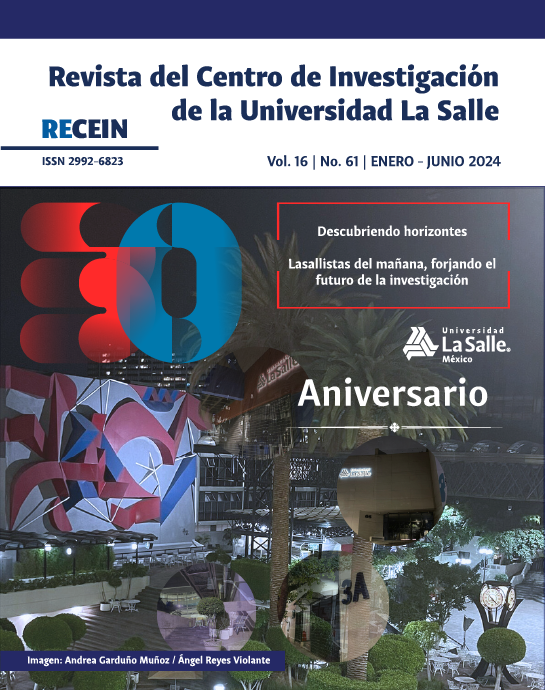Modelo EFQM y TQM, ¿es uno mejor que el otro?... Un análisis bibliométrico. 76
Main Article Content
Resumen
El objetivo de este estudio es mostrar la conexión que existe en torno a la Excelencia del Negocio con la Administración Total de la Calidad y el modelo de la Fundación Europea para la Administración de la Calidad, basado en una perspectiva de similitud, exclusión o complementariedad entre ambos. Para contrastar los propósitos anteriores, se realizó un estudio bibliométrico en publicaciones relevantes, que dieron como resultado similitud entre ambos, pero lo más importante, se observa una evolución del concepto de Administración Total de la Calidad a transformarse en el concepto Excelencia del Negocio, al cual se le adhiere el modelo de modelo de la Fundación Europea para la Administración de la Calidad.
También se encontró que el modelo EFQM muestra la evolución del concepto de Administración de la Calidad que ha sido generada por el ambiente VUCA (por sus siglas en inglés: volátil, incierto, complejo y ambiguo) en el que se desempeñan las organizaciones actúales, resultando este estudio una guía para las organizaciones, estudiantes y académicos interesados en explorar los atributos del modelo EFQM para la operación organizacional.
Descargas
Detalles del artículo

Esta obra está bajo licencia internacional Creative Commons Reconocimiento-NoComercial-CompartirIgual 4.0. Esta revista se encuentra bajo la licencia de Creative Commons, por tanto, los autores, al postular su artículo, lo adhieren a dicha licencia.
El autor puede disponer de su artículo para su archivo en repositorios institucionales o en páginas web personales, con la referencia y agradecimientos a la fuente donde se ha publicado.
Citas
Bendell, T. (2007). Does investing in excellence pay? SlidePlayer. http://slideplayer.com/slide/5789976/
Boulter, L.; Bendell, T., & Dahlgaard, J. (2013). Total quality beyond North America: A comparative analysis of the performance of European excellence award winners. International Journal of Operations & Production Management, 33(2), 197–215. https://doi.org/10.1108/01443571311295635
Broadus, R. N. (1987). Toward a definition of “bibliometrics”. Scientometrics, 12(5–6), 373–379.
Calvo-Mora, A.; Navarro-García, A., & Periañez-Cristobal, R. (2015). Project to improve knowledge management and key business results through the EFQM excellence model. International Journal of Project Management, 33(8), 1638–1651. https://doi.org/10.1016/j.ijproman.2015.01.010
Calvo-Mora, A.; Picón-Berjoyo, A.; Ruiz-Moreno, C., & Cauzo-Bottala, L. (2015). Contextual and mediation analysis between TQM critical factors and organisational results in the EFQM Excellence Model framework. International Journal of Production Research, 53(7), 2186-2201. https://doi.org/10.1080/00207543.2014.975859
Dahlgaard, J.J.; Chen, C.K.; Jang, J.Y.; Banegas, L.A., & Dahlgaard-Park, S.M. (2013). Business excellence models: limitations, reflections and further development. Total Quality Management & Business Excellence, 24(5-6), 519-538. https://doi.org/10.1080/14783363.2012.756745
Edgeman, R. (2018). Excellence models as complex management systems: An examination of the shingo operational excellence model. Business Process Management Journal, 24(6), 1321–1338. https://doi.org/10.1108/BPMJ-02-2018-0049
Elangeswaran, C.; Sanders, A., & Wulfsberg, J.P. (2016). Industry 4.0 implies lean manufacturing: research activities in industry 4.0 function as enablers for lean manufacturing. Journal of Industrial Engineering and Management, 9(3), 811-833. https://doi.org/10.3926/jiem.1940
Dale, B. G.; Zairi, M.; Van der Wiele, A., & Williams, A. R. T. (2000). Quality is dead in Europe–long live excellence - true or false? Measuring Business Excellence, 4(3), 4–10. https://doi.org/10.1108/13683040010377737
Donthu, N.; Kumar, S.; Mukherjee, D.; Pandey, N., & Lim, W. M. (2021). How to conduct a bibliometric analysis: An overview and guidelines. Journal of Business Research, 133, 285-296. https://doi.org/10.1016/j.jbusres.2021.04.070
EFQM (2020). EFQM 2020 Model – Revised 2nd edition EFQM. Retrieved August 18, 2021, from https://connect.bosch.com/wikis/form/api/wiki/eedc72dc-5b7c-46ed-ae7d-8e6b45f1060f/page/da6cfbb2-f95c-4f91-85c0-c7777b3875e6/attachment/7e08f149-5211-4ead-9041-6ac85f9254cb/media/EFQM%20Model%202nd%20Edition_Robert%20Bosch
EFQM (2020). The United Nations Sustainable Development Goals (UN SDGs). https://www.efqm.org/lens-series/UN-SDGs/#1
Fonseca, L. (2021). The EFQM 2020 model. A theoretical and critical review. Total Quality Management & Business Excellence, 33(9-10), 1011-1038. https://doi.org/10.1080/14783363.2021.1915121
Gunasekaran, A., Subramanian, N., & Ngai, W. T. E. (2019). Quality management in the 21st century enterprises: Research pathway towards Industry 4.0. International Journal of Production Economics, 207, 125–129. https://doi.org/10.1016/j.ijpe.2018.09.005
Gómez, J. G., Martínez Costa, M., & Martínez Lorente, ÁR. (2017). EFQM excellence model and TQM: An empirical comparison. Total Quality Management and Business Excellence, 28 (1-2), 88–103. https://doi.org/10.1080/14783363.2015.1050167
Hervaine, G. (2020). Stakeholder Capitalism and the EFQM Model 2020 for Corporate Management. Civic Review, 16. 368-384. https://doi.org/10.24307/psz.2020.1223
Jabnoun, N. and Sedrani, K. (2005). TQM, culture and performance in UAE manufacturing firms. Quality Management Journal, 12(4), 08-20. https://doi.org/10.1080/10686967.2005.11919267
James, M. (2020, January 30) Definition Of Business Excellence. My business excellence. https://mybusinessexcellence.com/definition-of-business-excellence/
Kim, D.; Kumar, V., & Murphy, S. A. (2010). European Foundation for Quality Management Business Excellence model. International Journal of Quality & Reliability Management, 27 (6), 684–701. https://doi.org/10.1108/02656711011054551
Mann, R.; Mohammad, M., & Agustin, T. (2012). Understanding Business Excellence–An Awareness Guide for SMEs. Tokyo. AP Organization
Paraschi, P.; Georgopoulos, A., & Kaldis, P. (2019). Airport business excellence model: a holistic performance management system. Tourism Management, 72. 352-372. https://doi.org/10.1016/j.tourman.2018.12.014
Pritchard, A. (1969). Statistical bibliography or bibliometrics? Journal of Documentation, 25(4), 348–349.
Pranckute, R. (2021). Web of Science (WoS) and Scopus: The titans of bibliographic information in today’s academic world. Publications, 9(1), 12. https://doi.org/10.3390/publications9010012
Sila, I. and Ebrahimpour, M. (2005). Critical linkages among TQM factors and business results, International Journal of Operations and Production Management, 25(11), 1123-1155. https://doi.org/10.1108/01443570510626925
Sinek, S. (2009). Start with Why: How great leaders inspire everyone to take action. Penguin Group.
Sinek, S. (2015). The golden circle. Gumroad.
 English
English


